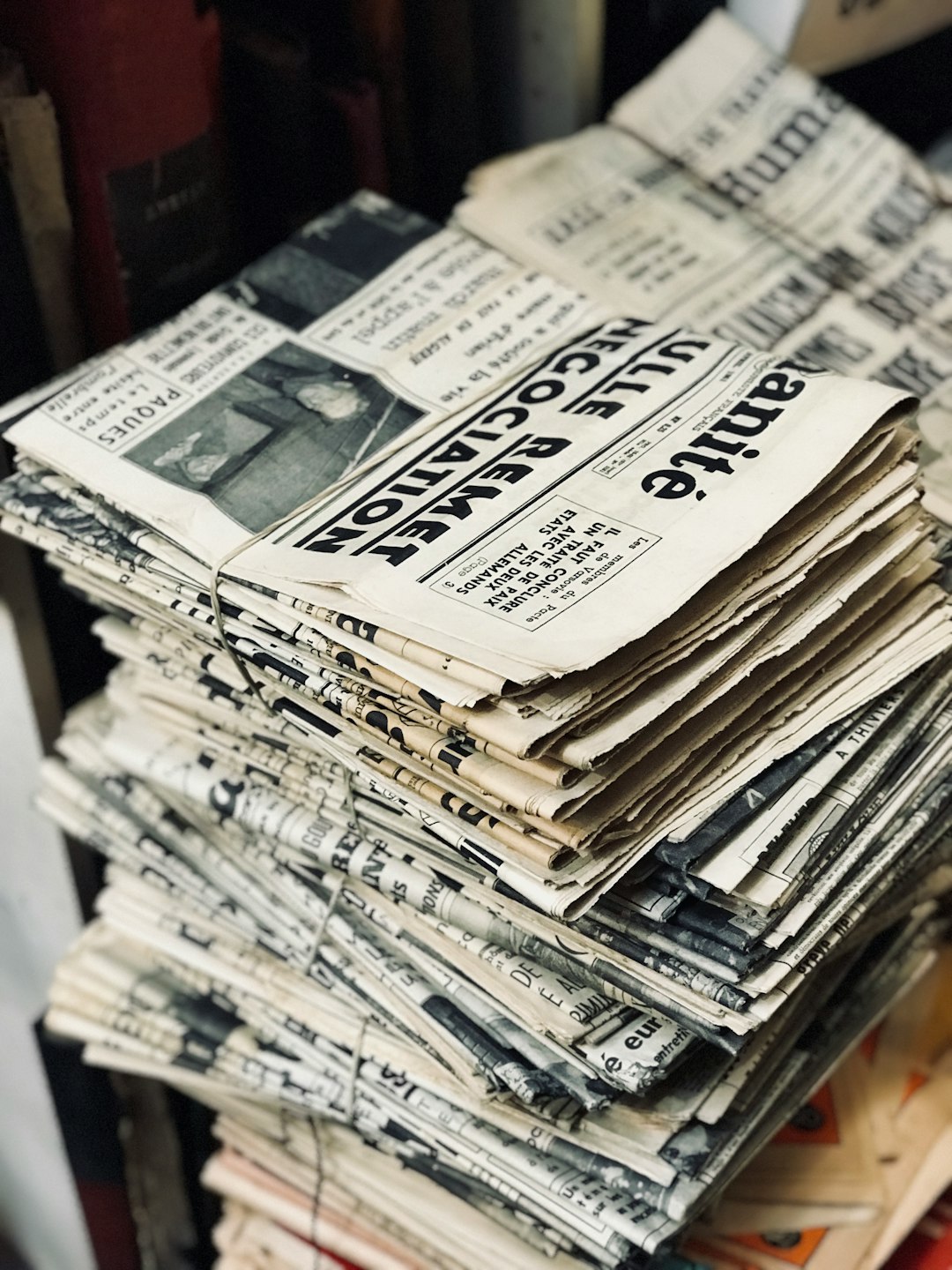The Sentinel #26: How to Think about Newsletters?
Threads, Anti-Library and the Big Lebowski.
Hi Subscribers, I am back after a scheduled break, and the newsletter resumes. I write about the role of explainers, models, and newsletters in a world where LLMs can write long essays in minutes if not seconds.
The Sentinel now goes out to 1000+ subscribers, after starting at zero earlier this year.
So, a million ‘thank you’s! Please share with your friends. -Senthil

Textual Revolution
We are in the midst of a Textual Revolution.
It is obvious that Large Language Models (LLMs) not only eat up all the letters in the world like a monster that swallows everything in the way. They also produce thousands of lines of text in (almost) no time. But, when it comes to building models of the world, it is still in the infancy of explainability. I often think how such Language “Models” could become like Stink Spirits, ingesting massive amounts of garbage and mixed-up everyday implements that humans produced and occasionally spitting out gold coins.

In this digital world, is the marginal word becoming meaningless?
In this context, the explosion of newsletters, blogs, and individual essays has some worried that there is just too much text in the world. The landscape will soon be an unfettered electronic jungle like the social media landscape eventually fatiguing and exhausting us. Maybe the worry is that like what happened with social media, with too many newsletters, the noise would crowd the signals.
I am of the idea that the volume of thoughtful writing even now pales in size compared to the vastness of the internet. In fact, the idea there are too many newsletters is like saying that there are too many books in the world.
In fact, I think that there is a lot more demand for reading going on in the world as textual communication has exploded. When the threads app was opened by Meta, they positioned it as “Instagram's text-based conversation app”. See! Text is important even in a world of pictures and videos. As of July 12, 2023, an estimated 108 million people have signed up for Threads. (I am a slow learner and adopter, so not yet there). The spread is pretty international. Threads App breakup looks as follows: India (22%), the United Kingdom (20%), Brazil (16%), and the United States of America (14%).
Even my humble newsletter reaches 70+ countries. Here is the breakup of the top 5 countries (which reveals how the international focus of this newsletter, The Sentinel can grow).
Most of us are “readers” and “writers”, as we read and write a lot of perfunctory stuff: memos, drafts, emails, chats, manuscripts, reports, reports on reports. Add to this massive volume of text messages and emojis that have replaced words. We all read so much and write so much. I even can’t help reading the subtitles and closed captions when I watch films. (yes, even the ones I watch in English).
The tragedy of the world is that perhaps reading for fun has diminished. I recognize that reading for fun is a pursuit among those of us who have time for leisure (many still need to work long hours to make ends meet). Nowadays, too few people read for fun.
LLMs are the biggest fun killers because writing is fun. Reading can be a lot of fun, especially if the writing comes from a source people trust. Newsletters should seek to tailor that fit, to make reading more fun.
Eco’s Library
I admire Umberto Eco for his prodigious span of knowledge of the world and his sense of humor. A professor of semiotics, and a dabbler in all sorts of arcane ephemera, Eco was reputed to have a home library of 30,000 books. (Alas, mine can never measure up).
In his BBC World Book Club interview, when Harriett Gilbert the interviewer, speculates on the number of books in Eco’s Milan home library, he disarmingly muses: “In Milan, 30,000. All Together there are 50,000”. Of course, Eco himself knows that there is no way he has read all the books he owns. However, I bet he knows why each book got on the shelf.
(Above: A 1-minute clip of Umberto Eco’s Home Library).
In his book, “How to Travel with a Salmon: and Other Essays”, he writes about a visitor entering his Milan home in the chapter on “How to justify a private library”:
The visitor enters and says, “What a lot of books! Have you read them all?”
Eco is bemused and ponders that,
“It could be said that there are still people who consider a bookshelf as a mere storage-place for already-read books, and do not consider the library as working tool.”
He contemplates various answers that range from a quick dismissal to utmost earnestness and finally decides on:
“These are the ones I have to read by the end of the month. The rest I keep in my office.”
One purpose of reading books is to discover things you do not know about, invariably including some “new” books that did not exist in your ken. Nassim Taleb, an esoteric polyglot (and a Management Science Ph.D.), introduced the notion of Anti-library.
The writer Umberto Eco belongs to that small class of scholars who are encyclopedic, insightful, and nondull. He is the owner of a large personal library (containing thirty thousand books), and separates visitors into two categories: those who react with “Wow! Signore professore dottore Eco, what a library you have! How many of these books have you read?” and the others — a very small minority — who get the point that a private library is not an ego-boosting appendage but a research tool. Read books are far less valuable than unread ones. The library should contain as much of what you do not know as your financial means, mortgage rates, and the currently tight real-estate market allows you to put there. You will accumulate more knowledge and more books as you grow older, and the growing number of unread books on the shelves will look at you menacingly. Indeed, the more you know, the larger the rows of unread books. Let us call this collection of unread books an antilibrary.
- Nassim Nicholas Taleb, The Black Swan: The Impact of the Highly Improbable.
Anti-library is a peculiar word. Like wisdom, we define it by the expanse of its complement set. We know we understand our knowledge, by the extent of what we do not know.
Once we accept that there is not enough time to read every written word we are interested in, a peculiar freedom envelopes us. The freedom releases us from the yoke of completion — and we can read just for fun.
Clogged Inboxes and Cluttered Homes?

We sometimes worry that newsletters will clog up our inboxes. In the Inbox Zero world, this is a natural worry. We fear that such emails will soon be like spam or the uninformative collection of emails from the store you visited once when on a trip. For sure, some newsletters go into spam, as your tastes change.
But newsletters will clog our inboxes like books that lie around in a reader’s home. The books surely take up space, but they also enliven our living spaces. It is fantastic to walk into a room and find a half-read book that invites you back right in.
On my side table, by this not-so-comfy sofa, lies a copy of Donald Frame’s translation of The Complete Essays of Montaigne and a dog-eared copy of Bobby Fisher Teaches Chess, an excellent idiosyncratic approach to learning chess endgames. I have not read both books cover to cover. Neither have I ever planned on reading them in one go. They are definitely not textbook concepts that I have internalized. I’ll never learn to play chess like Fisher and write in French like Montaigne (His second language — like English is mine — because he was educated in Latin), but the essays and puzzles in the books have given me moments of unbridled joy.
Newsletters are a bit like that. I subscribe to quite a few — I read them at my pace. I let them lie around in my inbox, like books at my home. They live there in chronological sequences, like weirdly sequenced books in my house.
It is also a wonderful advantage that newsletters, like books, skip the “LOOK-at-PLANET ME” component of the social media world. True readers know that reading Bertrand Russell is more pleasurable than being seen to have read Bertrand Russell. Reading a book is often a conversation with a best friend — both the pleasure and privacy of it. You don’t need to justify the effort. You can depart a dangling conversation, to attend to your usual chores and come back.
A great book, like a genuine friend, waits, and in waiting, doesn’t make you guilty.
We should see email newsletters this way — subscribe away; let them collect in the cobwebs of our virtual bookshelf and become our anti-library.
Subscribing to a newsletter is like buying a book — it is just an expression of intent to learn. Also, just a recognition that the book exists. Thereafter, the book is yours. Hence, newsletters, like books, have to earn your attention. Read them at random, as your time allows. Newsletters, like books, are here to make you better.
It is the conceit of the newsletter writer to imagine that they are writing a Telenovela — and the readers should follow the “plot”. Some newsletter writers imagine they own the reader’s attention and readers know the progression of their thought. “I wrote about so-and-so concept in that post, but you missed it”, they chastise the readers as if the readers were dozing in the middle of a lecture.
If you are reading this, realize that the writers (including me) don’t own your attention. Writers own subscribers only like a book owns its row on the bookshelf. Subscribers arrive and depart randomly — they have no reason to know a writer’s past and discern the end. Subscribers are waders dipping their feet in the waters on the banks. The river knows its own history and may have journeyed tumultuously, like the mighty Zambezi, from its headwaters, but it does not matter to the wader in the calm. The wader, like the reader, is there to just spend the moment.
The newsletter should aspire to be like The Dude in Big Lebowski. To naturally abide. It should wait and build a reader’s digital anti-library.

We should guard our minds like our homes. Let the newsletters you love, enter your anti-library, but when and how you read them is entirely your choice. All the emails and books can wait for your attention.
As Milton on slowly losing his eyesight, and pondering his role, wrote, ‘They also serve who only stand and wait’.
Thank you for welcoming this newsletter into your anti-library.



Thank you for this wonderful post, Prof Senthil. You have absolved me from my guilt of unread newsletter pileup in my inbox. I have always prided myself on the number of read books in my humble physical+online library but your post gives me new ideas. It's fascinating to see The Dude making it beside some of the literary greats like Eco & Russell. I still fondly remember one of my English textbook lessons titled "Knowledge and Wisdom" by Bertrand Russell and have developed enormous respect for the educators who pick those items for the school textbooks.
Now that this newsletter came out of the Anti-library, I'll compensate by adding "The Complete Essays of Montaigne" to it.
What a wonderful back-from-the-break surprise. Thank you for it! Funny, I have the same Essay collection from Montaigne on my shelf. Thanks to you, Umberto, and Nassim, I will feel less guilty about not having read more pages out of it. Curious: which newsletters do you read with great pleasure yourself?